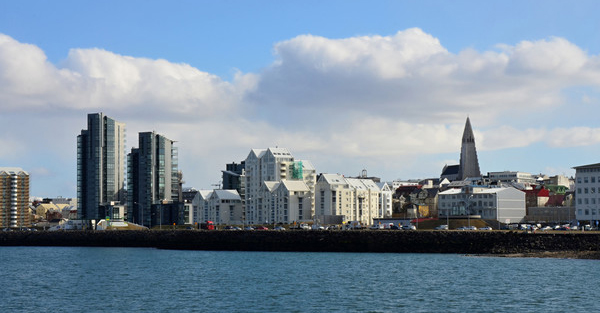
Revenge of the Vikings — Iceland Will Create Its Own Money … Iceland is taking the money back from the clutches of the private fractional reserve lending cartel. It’s happened before in history, and with great success, but it has also prompted a violent backlash from the elites … – 21st Century Wire
Usually we comment on the elite propaganda of mainstream media reports, but we’ve always made an exception for “public money.”
That’s because we tend to believe it’s an elite meme – a fallback for the same people who invented the current central banking economy. So long as they can keep money controlled by a central authority, they can take over the monetary facility once more, sooner or later. It doesn’t matter who runs the monopoly central bank so long as one exists.
Nonetheless, on a regular basis we get informed that the problem with modern money is that it is controlled by a private “cartel.”
If the “government” itself controlled money, then economic conditions would be far more tolerable, we learn wearily over and over again.
This article, excepted above, makes some of the same arguments, though this time the issue is not hypothetical as Iceland is considering a form of “public money.”
More:
Agence France Presse reports: Iceland’s government is considering a revolutionary monetary proposal – removing the power of commercial banks to create money and handing it to the central bank. The proposal [was contained] in a report written by a lawmaker … Frosti Sigurjonsson.
The article goes on to make all the predictable arguments about “private” central banking (which is actually anything but private). We learn predictably that it’s necessary for the government to take over money production and (presumably) issue it out without debt.
What would happen if this wonderful occurrence took place? The article fills us in:
If accepted in the Iceland parliament, the plan would change the game in a very radical way. It would be successful too, because there is no bigger scourge on our economies than commercial banks creating money and then securitizing and selling off the loans they just created the money (credit) with.
Say what? It’s true that commercial banks create money, but the central bank ultimately controls the “price” and volume of credit available. Theoretically, a modern central bank could entirely choke off a country’s money supply by sending interest rates sky-high. Paul Volcker did something like that in the early 1980s.
In fact, as we’ve seen with quantitative easing, central banks can arrogate powers to themselves that we’re not even aware of. An example would be negative interest rates, also being imposed by central banks.
To imply somehow that the “biggest economic scourge” is credit creation by commercial banks is simply untrue. The biggest economic scourge is the virtually unlimited monetary power of central banks.
Get rid of commercial banking and nothing would happen to the world’s current disastrous state. Over time, business cycles would reignite as destructively as ever. Get rid of monopoly central banks and everything would change.
Central banks sit at the heart of credit expansion because they provide society’s seed money. Modern, monopoly central banks have an arsenal of monetary and credit weapons second-to-none.
Iceland’s “reform” sounds strange to us until one considers that it is basically being produced by the government. Presumably, that’s why under this plan, Parliament would have the final say regarding the volume and price of “money.”
These sorts of suggestions are terribly sad. They confuse people about what is money and how society can best be organized to use it.
In fact, money is very simple as Murray Rothbard showed us. It’s like anything else, a competitive commodity. Gold and silver won the competition over thousands of years.
If government and well-meaning monetary planners would just step out of the way, Western economies would surely revert to the use of gold and silver in a short period of time.
Business cycles would diminish because the market itself would operate to damp an over-abundance of credit. In fact, savers would experience a gentle deflation over time, as gold-based money tends to appreciate in value relative to technology.
Conclusion: Don’t be fooled by the kind of rhetoric we’ve just examined. The problem isn’t public banking or private banking. The problem is simply that the modern central bank has a monopoly on printing money. Get rid of the monopoly and society would prosper as it has before.
